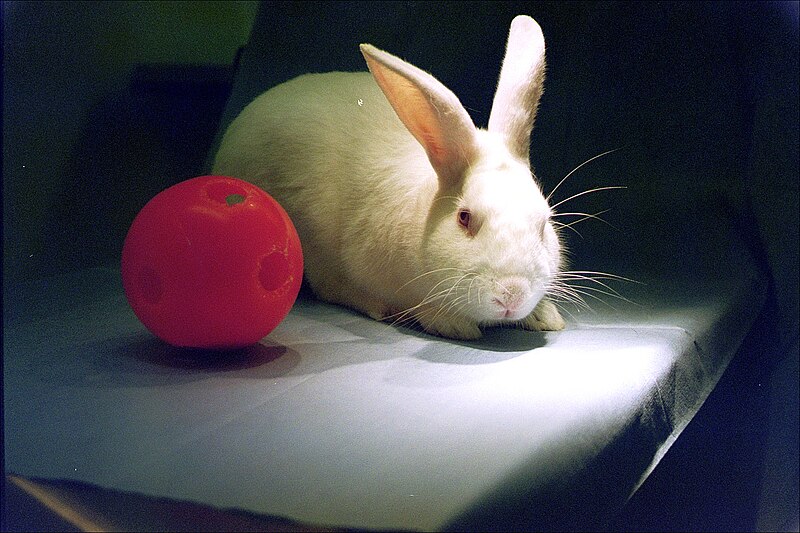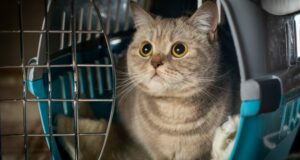 Two recent studies have highlighted the role that stress and boredom plays in pet behavior and health. Although carried out on research colonies of cats and rabbits, both contain important lessons for pet owners. Steps as simple as establishing a routine substantially reduced the pain associated with serious illnesses.
Two recent studies have highlighted the role that stress and boredom plays in pet behavior and health. Although carried out on research colonies of cats and rabbits, both contain important lessons for pet owners. Steps as simple as establishing a routine substantially reduced the pain associated with serious illnesses.
Novelty vs. Routine
Experience has taught me that stress plays a major role in the health of all captive creatures, be they insects or elephants. While novelty and new experiences may be positives, established routines also have their uses.
For example, I recall that when working with Marsh Crocodiles I had no difficulties as long as I cleaned their exhibit in exactly the same manner. But were I to backtrack or make another change, I could expect anything from a retreat to a full-blown attack…every animal keeper has similar stories.
Cats: Ultimate Survivors, but….
Domestic cats, however, have always struck me as among the most resilient of all creatures. Cats that survived a shipwreck off the tip of Argentina, and now live on a near-Antarctic island, are the southernmost population of any non-marine mammal, and have adapted to extreme diets and temperatures; others living in central Australia never encounter standing water, yet thrive. So I assumed that they would be relatively insensitive to most disturbances.
However, an Ohio State University researcher working with chronically ill cats noticed that their symptoms improved when she established a set care routine. The cats were fed and groomed at the same time each day, their litter boxes and food bowls were positioned in the same places, and they were provided with many hiding spots, toys and a daily opportunity to play with other cats. As a consequence, vomiting, hairball regurgitation and defecating outside the litter box declined.
Subsequent experiments documented a 75-80% reduction in pain symptoms when the cats were provided with an environment that offered opportunities for exercise and exploration. Healthy cats that were stressed by being restrained, fed at odd intervals, or denied their usual exercise periods quickly exhibited vomiting and other signs of illness.
Human Health Implications
The cats being studied at Ohio State were afflicted with Interstitial Cystitis, a painful inflammation of the bladder wall. People are also susceptible to this disease, and there is no effective treatment as of yet. It is hoped that this research may be useful to people and to captive animals of many species.
Bored Rabbits are Sick Rabbits
The health of rabbits on commercial farms was the subject of an article recently reported by the European Zoo Nutrition Center. Boredom, which is common in the sterile environments offered by most commercial rabbit-rearing facilities, leads to serious health and behavioral problems.
Studies testing the use of wood blocks as an enrichment item found that rabbits ignored hardwoods but eagerly gnawed willow, linden, Norway spruce and other soft woods. Chewing wooden blocks kept the rabbits occupied and led to a reduction in abnormal behaviors.
The provision of hay and straw was even more effective in reducing boredom, and also provided valuable bulk to the diet. However, damp hay presents its own health problems, and so must be monitored carefully.
Overall, digging opportunities provided rabbits with the greatest improvement in quality of life and health…all important points for rabbit-keepers to bear in mind.
Further Reading
Stress and Cats (Ohio State University)
Housing Standards for Lab Rabbits: an examination of captive rabbits’ needs
Thanks, until next time,
Frank Indiviglio
 That Pet Blog That Pet Place Pet Blog
That Pet Blog That Pet Place Pet Blog


Pets health is way the same as the heath of a human person. They also need proper food, care and respect. If your cat or rabbit is behaving something not good, your pet might not feeling well, in case if your pet was sick, go to the nearest veterinarian and check if your pet is okay or not.